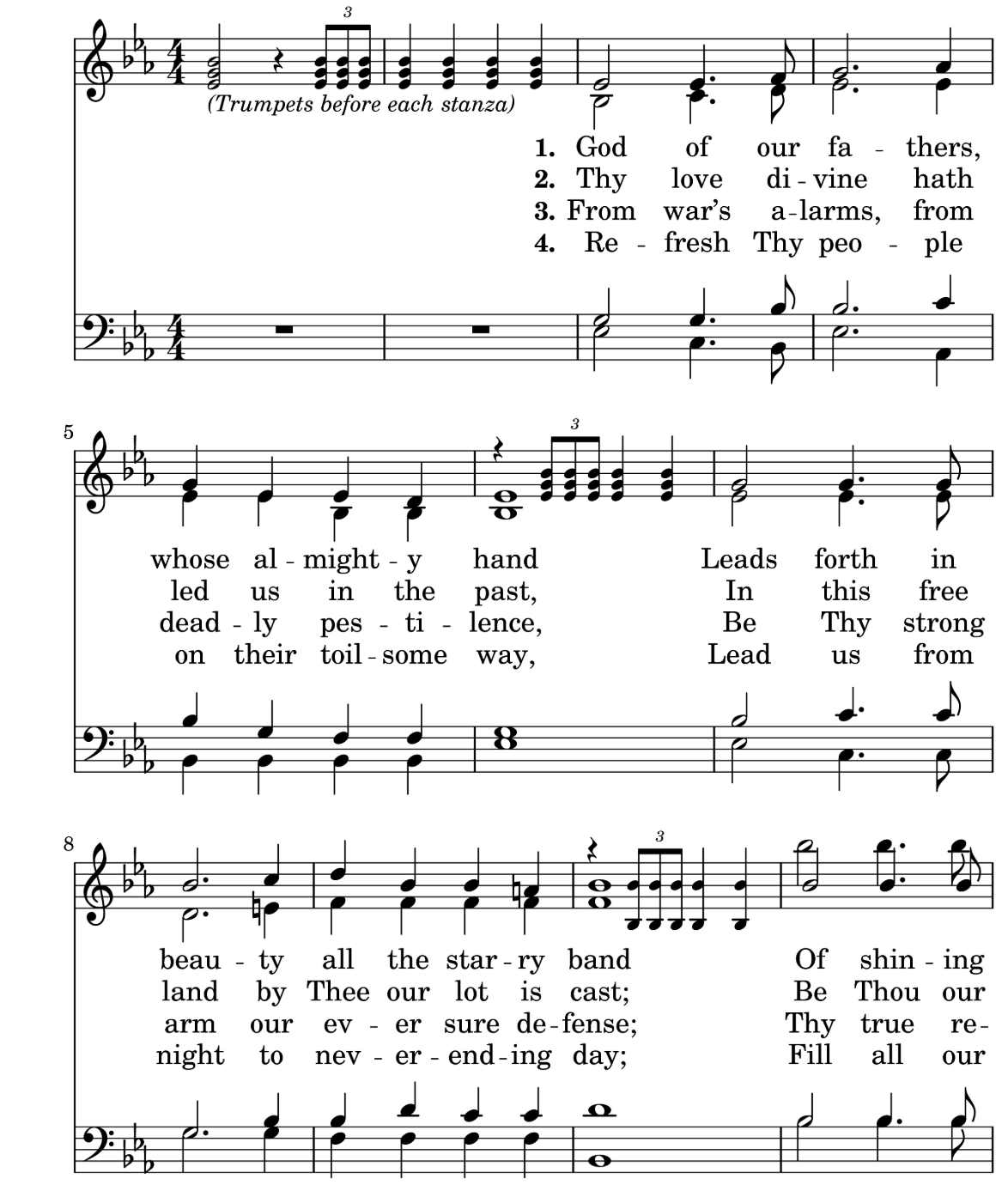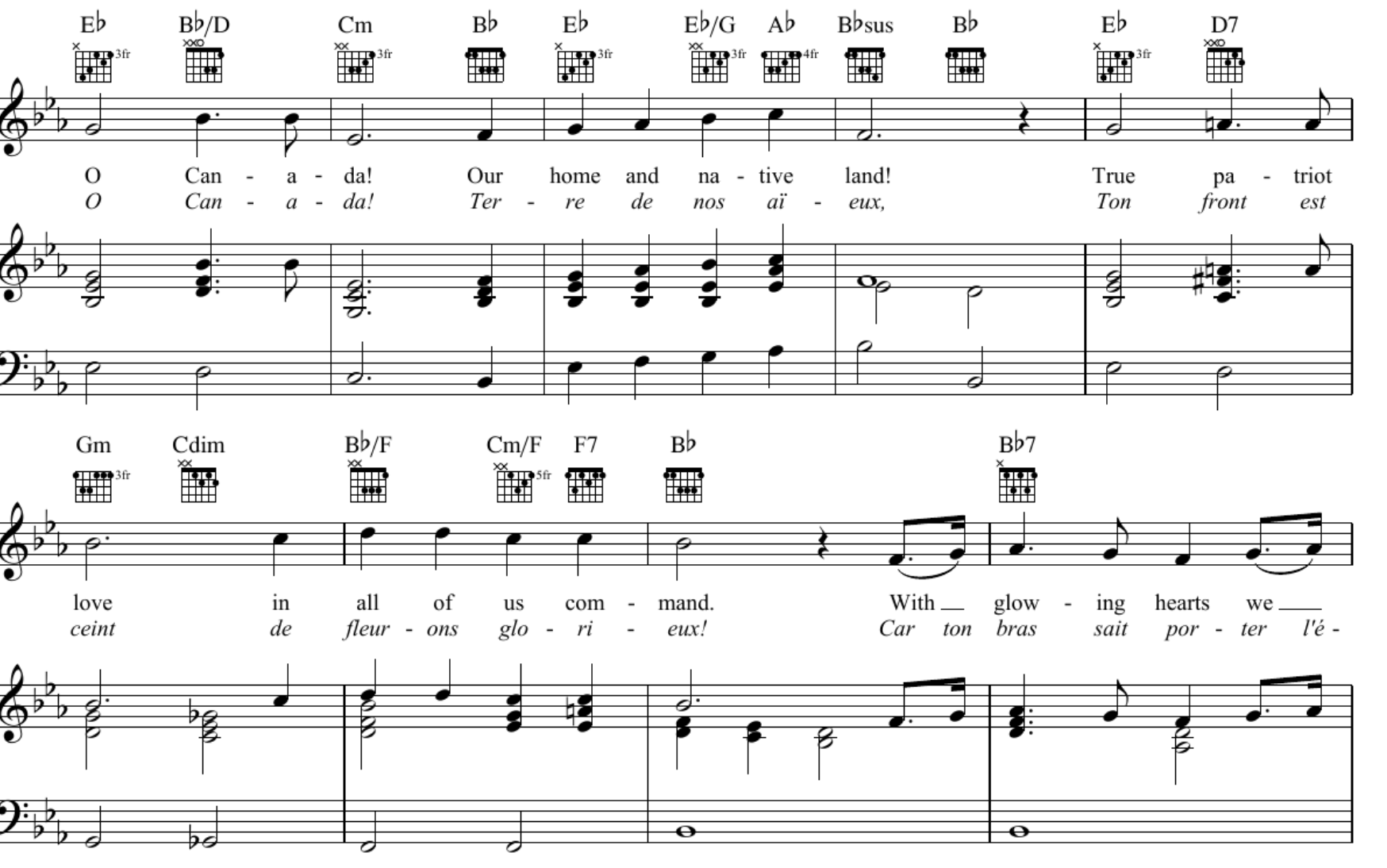Initial impression of iPadOS 26 Dev Beta 3: big improvement. Feels a lot smoother on my M2 iPad Pro. They dialed back the transparency quite a bit in several places, most notably on first use the Safari address and tab bar.
Proud dad moment: K16 took 3 AP classes last year (soph HS year) and took the AP tests for each of them. Got her scores back today: 5s (best possible score!) on all three tests. This kid is ambitious and knows how to work hard. Can’t wait to see where it takes her.
Hi, I'm Chris.
A little music nerdery: 'God of our Fathers' and 'O Canada'
This morning before church I was listening to the organist practice, and while I knew from reading the bulletin ahead of time that the processional was God of our Fathers, when I heard the organ music my brain wanted to run with it instead as O Canada. At the time I was puzzled why, but then when I actually sang the hymn while processing, I realized what it is: the second line of both songs is nearly identical in melody and harmonic progression.
I dug up sheet music for both of them in the same key just to belabor the illustration. Here’s God of our Fathers:

And here’s O Canada:

My music theory is rusty, but in the second line (“Leads forth in beauty all the starry band” and “True patriot love in all of us command”, respectively), they start on the I, hit the iii, and then the V - V/V - V cadence with almost the same melody. The Canadian anthem does sneak a transitional V/iii chord in as some passing snazziness, but on the whole: I will forgive my brain for mentally continuing on “with glowing hearts we see…” rather than “of shining worlds in splendor…”.
Thus endeth the music nerdery.
(“Thanks be to God!”)
More recent longform writing...
- Fifth Season 5k
- Hey, it's another book club (of sorts)...
- Bullet Points for a (very warm) Monday Morning
- We are slowly becoming the Elders
- If humans hadn't sinned, would Christ have still come?
- Chris Arnade on American vs European values and "the good life"
- My talks at Christ Episcopal Church Adult Forum, May 2025
- State champ!
- Wanting to be anti-Trump while disavowing culpability
- Freedom from the compulsion to pretend: Mtr. Kelli Joyce on gender traditions and the fruit of the spirit